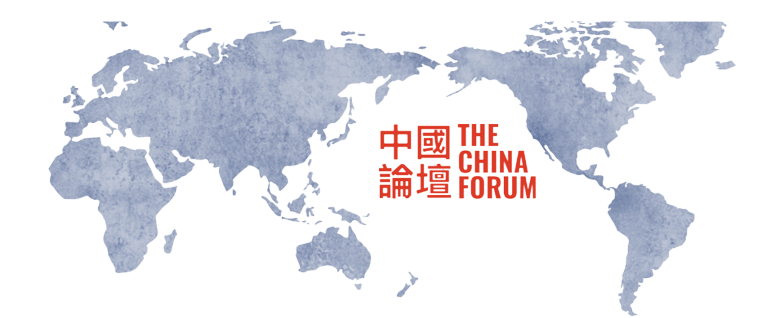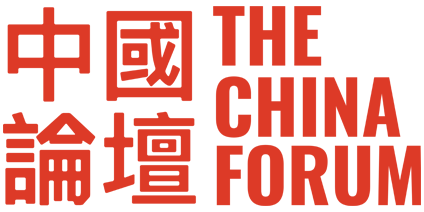China Forum Agenda 2021
China Forum is an annual conference in Washington, D.C. convening scholars, experts, and policymakers in the areas of trade and economics, foreign policy and security, and human rights and political development. The goal of China Forum is to help Americans understand the nature of the People’s Republic of China, the Chinese Communist Party, and key issues in U.S.-China relations.

China Forum Agenda 2021
- WEDNESDAY, OCTOBER 27
China Forum 2021
- 9:00 AM - 3:30 PM
- Victims of Communism Museum 900 15th Street NW Washington, D.C. 20005
Opening Remarks
- 9:00 AM – 9:45 AM
- Amb. Andrew Bremberg, President, Victims of Communism Memorial Foundation
Chairman’s Remarks
- Edwin J. Feulner , Ph.D., Chairman, Board of Trustees, Victims of Communism Memorial Foundation
Keynote Remarks
- Michael Pillsbury, Ph.D., Senior Fellow and Director for Chinese Strategy, Hudson 1 Institute
Technology, Authoritarianism, and Big Tech’s Compliancy
- 9:45 AM – 10:45 AM
TECHNOLOGY, AUTHORITARIANISM, AND BIG TECH’S COMPLIANCY
The unique pairing of an authoritarian government with highly advanced technology has resulted in the world’s most sophisticated police state, and the CCP is determined to export these measures to regimes around the world. This panel will discuss the extent to which the CCP seeks to disrupt global norms governing the use of technology to repress people both at home and abroad and how Silicon Valley is unwittingly or wittingly complicit.
Panelists:
- Emily de La Bruyère, Co-Founder, Horizon 123Advisory
- Ian Easton, Senior Director, Project 2049 123Institute
- Nathan Picarsic, Co-Founder, Horizon 123Advisory
- Adrian Zenz, Ph.D., Senior Fellow and 123Director, China Studies, Victims of 123Communism Memorial Foundation 123(moderator)
Global Governance: World Order With Chinese Characteristics?
- 10:45 AM – 11:45 AM
Now more than ever, the CCP appears confident that their system of governance is ascendant. This now poses a serious question for the U.S. and its allies: Does the CCP intend to export this system of governance in the same way that the Soviet Union did? This panel will explore the ways in which the CCP is promoting its authoritarian system overseas, or at least using its growing influence to silence dissent against it.
Panelists:
- Peter Mattis, Director of Research and 123Analysis, Special Competitive Studies 123Project
- David Sauer, Retired CIA Officer Miles Yu, Ph.D., Professor of History, 123U.S. Naval Academy
- Amb. Andrew Bremberg, President and CEO, 123Victims of Communism Memorial 123Foundation (moderator)
China’s Frontiers: The Ccp and Colonial Legacies
- 11:45 AM – 12:45 PM
How do we view China – a nation, a civilization, or an empire? In 1949, the CCP inherited a vast landmass that encompassed countless cultures, languages, and ethnic groups. Mao implemented a Leninist system that promised many of these unique groups autonomy within a socialist state. However, under Xi Jinping and his “second-generation ethnic policies,” it seems that the CCP has resurrected the same kind of colonialism that was practiced by the empires of the 19th century. This panel will focus on the crises facing the nations that live along China’s historical frontiers, namely the Turkic peoples, Tibetans, and Mongols, as well as how Hong Kong fits into this discussion.
Panelists:
- Bhuchung Tsering, Interim President, 123International Campaign for Tibet
- James Millward, Ph.D., Professor of Inter- 123societal History, Walsh School of Foreign 123Service, Georgetown University
- Jeffrey Ngo, Hong Kong Activist Historian and 123Ph.D. Candidate, Georgetown University
- Olivia Enos, Senior Policy Analyst in the Asian 123Studies Center, The Heritage Foundation 123(moderator)
LUNCHEON
- 12:45 PM – 1:30 PM
Supply Chain and Forced Labor
- 1:30 PM – 2:30 PM
Reports published in the past year by VOC have presented new evidence that hundreds of thousands of indigenous laborers in Xinjiang are being forced to pick cotton and attend “vocational training,” and being deported to other parts of the country as part of a coercive, state-mandated labor transfer and “poverty alleviation” scheme, with possibly drastic consequences for global supply chains. This panel will discuss this evidence, its implications, and what can be done to effect change.
Panelists:
- Allison Gill, Forced Labor Director, Global 123Labor Justice International Labor Rights 123Forum
- Michael Sobolik, Fellow in Indo-Pacific Studies, 123American Foreign Policy Council
- Adrian Zenz, Ph.D., Senior Fellow and Director,123China Studies, Victims of Communism 123Memorial Foundation
- Ethan Gutmann, Research Fellow in China 123Studies, Victims of Communism Memorial 123Foundation (moderator)
Finance: The Myth of Chinese Financial Hegemony
- 2:30 PM – 3:30 PM
FINANCE: THE MYTH OF CHINESE FINANCIAL HEGEMONY
China is home to the largest finance sector in the world, but it may not be as strong as it seems. The Global Magnitsky Act empowered free governments to sanction individuals responsible for human rights abuses. The free world appears to be on the verge of taking the next step, which is to target private companies whose support of governmental actions makes the abuses possible. This panel will highlight the risks run by U.S. and Chinese businesses providing material support for China’s human rights abuses. Additionally, this panel will discuss how multinational corporations are enabling Beijing’s repression and what can be done to hold them to account.
Panelists:
- William Browder, CEO, Hermitage Capital 123Management
- Dexter Roberts, Senior Fellow, Atlantic 123Council
- Roger Robinson, President and CEO, RWR 123Advisory Group
- Jillian Melchior, Writer, Wall Street Journal 123(moderator)
Closing Remarks
- 3:30 PM
- Amb. Andrew Bremberg, President, Victims of Communism Memorial Foundation
